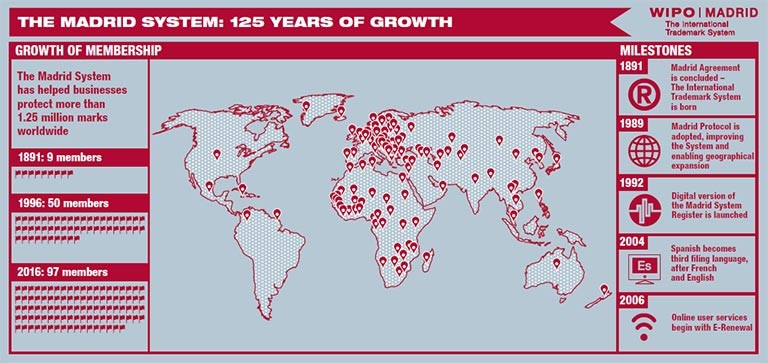This system was established to provide trademark protection in multiple countries by filing a single international implementation under either the Madrid Protocol or the Madrid Agreement, thereby reducing the costs and time required to file multiple national applications. Consequently, the mark owner can make amendments to the application, pay costs, and even repeat the application in a straightforward process rather than going through burdensome administrative formalities in each of the nations where the mark has been chosen for registration in several countries.
Trademark Registration in India: A Look at the International Process
In any solid corporate marketing plan, trademarks are essential because they enable businesses to identify, advertise and license their goods and services available in the market while distinguishing them from their opponents, thereby increasing client loyalty. In addition, trademarks serve as promises to customers that their products will be of superior quality. In today’s globally connected and more electronic economy, trademarks are frequently customers’ only means of distinguishing one company’s products or services from those of its competitors. Attempts to free ride on a company’s reputation are prevented by trademark protection, which prevents the use of comparable distinguishing characteristics to advertise inferior or similar items or services. When a high-value trademark is lost, diluted, or infringed upon, the consequences for a company can be catastrophic.
The Indian Point of View-
Indian officials have expressed interest in joining the Madrid system and have expressed a strong desire. As India becomes more aware of the numerous benefits of joining the Madrid System, in specific the fact that an applicant for an international trademark services is supposed to report only one request, pay only one fee in domestic currency, and is not required, at least in the beginning, to submit foreign powers of attorney, the country is taking steps to realize these benefits. By submitting a single document to the International Bureau, it is possible to effect changes to an international registration, such as renewals, assignment recorders, and name and address changes. Aside from that, the payment of a single processing fee and compilation of a single application is expected to result in cost savings in legal services.
Indian officials have stated that they will join the Madrid System after making the necessary preparations, including the modernization of their trademark registration offices. Investment and activity in this direction should be accelerated, and Indian suppliers of goods and services should be allowed to take advantage of the system as soon as possible. It should also be highlighted that the Madrid Process does not prohibit trademark holders from routing their applications through the IP offices of member nations other than their home country to protect their trademark. Suppose India does not join the system by the end of the year. In that case, Indian enterprises may be obliged to submit their international applications through the IP offices of foreign countries, which will need the establishment of minimal operations specifically designed for this purpose of international trademark services.
While considering the Indian context, some significant issues and apprehensions have arisen. They must be addressed and resolved before India becomes a member of the Madrid System of intellectual property protection.
A few of the most pressing issues that have arisen in this regard are summarized as follows:
- It is anticipated that the Protocol applications will add to the queue at many already overcrowded Trademark Offices, where it now takes over one to two years to analyze and process applications if they are accepted.
While the arrangement will benefit corporations, the government and local trademark attorneys may suffer as a result of it, as it will likely result in a significant reduction in local filings.








